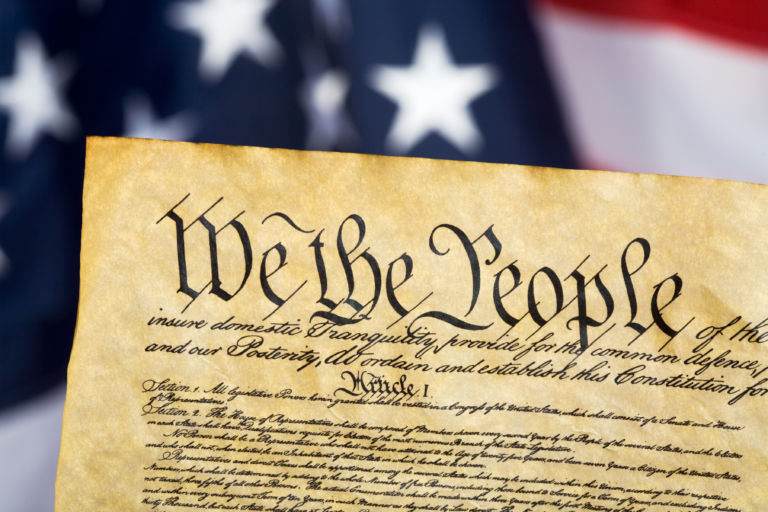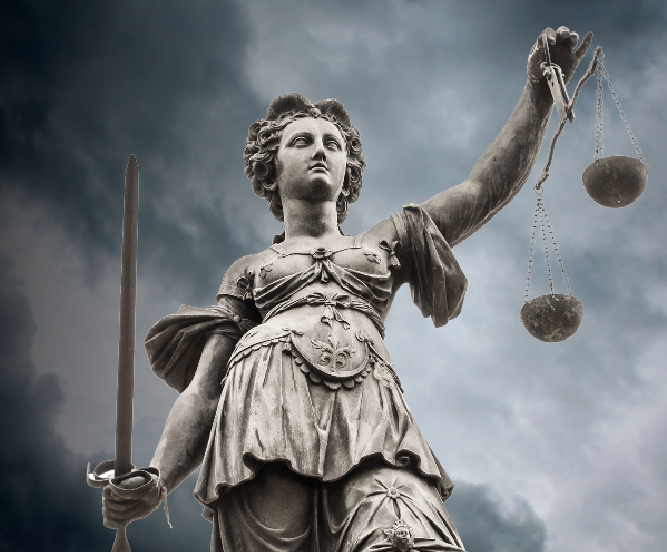The North Carolina History Project has hosted various
programs, including living history events, constitutional workshops, and
academic symposia, to foster national and state constitutional literacy.
Previous lecturers have included Kevin R. C. Gutzman,
history professor at Western Connecticut State University and best-selling
author of The Politically Incorrect Guide
to the Constitution and the recent James
Madison and The Making of America.
Another NCHP speaker has been Jeff Broadwater, professor of history at
Barton College and author of George
Mason: Forgotten Founder and the recent James
Madison: A Son of Virginia & Founder of the Nation.
Considering the number of recent publications and renewed interest
this year with the fourth President of the United States, I recently asked the
two to tell Founding Era News readers "Five
Things You Need to Know About James Madison." They graciously obliged.
This newsletter edition features Professor Gutzman’s
remarks.
Five Things You Need To Know
About James Madison
Even if you are an expert, chances are that your idea of
James Madison is highly skewed. He gets
almost no credit for his most important accomplishment; two of his supposed
chief achievements were less important than many think; he opposed another
before he was for it; and he tried to reel one in after he cast it out.
- Take the most common title for Madison: "Father
of the Constitution." The standard version of Madison’s
life has him working hard to bring about the Philadelphia Convention that wrote
the Constitution, presenting the Constitution’s
rough draft to the Convention, persuading fellow delegates to adopt it, and
co-authoring The Federalist Papers to
get it ratified.But virtually all of that is wrong. Yes, Madison did help persuade the states to
assemble a convention, and yes, he did take the lead in drafting the
nationalist Virginia Plan, but beyond a three-branch central government — which
other delegates proposed as well — most of Madison’s
plan was rejected. In fact, he was on
the losing side on the majority of votes cast in the Philadelphia
Convention. So unhappy was Madison with
the Convention’s
omission of his favorite ideas that he predicted the new government would fail
within a few years. He always refused "credit"
for writing the Constitution. - After the Philadelphia Convention ended, yes, Madison
did work energetically for ratification, notably in his home state of Virginia
and in New York. He wrote just over one-third
of The Federalist Papers (which in
his day were known simply as The
Federalist).But those essays had little effect on the ratification
campaign. Most were first published in
New York newspapers, where they did not persuade the vast majority of New
Yorkers to vote Federalist. (Over
two-thirds of the delegates to New York’s
ratification convention were elected as Antifederalists.) They weren’t
all republished in any other state. And
in Virginia, where Madison and his friends did circulate several dozen copies
of the book version of the series, it’s
not clear that they persuaded anybody. The Federalist Papers’
fame rests on their authors’ later
political eminence. - Having helped win a narrow victory for the Federalist
(pro-ratification) side in his state’s
convention, Madison stood for legislative election to the U.S. Senate. He lost.
Next, he unhappily submitted himself to an authentically popular
campaign for the House, which he resented.
Here, despite previously having argued that a bill of rights was both
unnecessary and potentially dangerous, Madison accepted his constituents’
demands for one. Only by that means did
he win a seat in the House of Representatives.Madison really does deserve his title of Author of the
Bill of Rights — but only if we understand it as he did. He argued that a bill of rights was
unnecessary since Congress would have only the powers that were
listed in the Constitution, and since the Constitution did not say, for
example, that Congress could regulate the press, it would be superfluous to add
provisions such as that Congress could not regulate the press.In the House, Madison repeated this argument. He also added that adoption of a bill of
rights would allay the fears of some people who would otherwise support the
Constitution. Besides, since Congress
had not been granted power to do any of the things the Bill of Rights would say
it could not do, Madison added, this would not restrict the new government’s
powers in any significant way. In short,
Madison intended the Bill of Rights as a placebo, and he sold it to his
colleagues on that basis. With one
notable (negative) exception, it would be over a century before the Bill of
Rights came to play a significant role in American life — and even then in an
un-Madisonian way. - In 1791, two years from the Federal Government’s
birth, Madison propagated one of the classic approaches to constitutional
interpretation: strict
construction. In opposition to Alexander
Hamilton’s Bank
Bill, Representative Madison developed the states’
rights-centered approach to constitutional interpretation that would come to be
associated with Thomas Jefferson. By
1798, Madison joined Jefferson and other opponents of Federalist over-reaching
in warning that the states would resist unconstitutional and dangerous federal
usurpation. In the last decade of his
life, the 1830s, Madison decided this argument could be carried too far. Instead of distinguishing the 1790s from the
1830s, he denied that he had said a state could resist federal policy. But he had. - Most important among Madison’s
achievements, by far, is one for which he gets very little credit. In his very first elected office, aged 25,
Madison coined the phrase "free
exercise of religion"
for the Virginia Declaration of Rights.
This marked a great leap for religious freedom from the traditional
English "toleration"
of dissident opinion. In time, Madison
would include the same phrase in the Bill of Rights as well. What almost everyone overlooks, however, is
that although Thomas Jefferson drafted the Virginia Statute for Religious
Freedom, Jefferson failed to win its adoption.
Only Madison was able, through expert parliamentary and political
maneuver, to convert Jefferson’s
rejected Bill into the mighty Statute that made Virginia’s
the first officially secular government in the world. Jefferson claimed the credit, even putting
his authorship on his gravestone, but Madison deserves it. Without Madison, it would have been simply a
good idea.
— Kevin
R. C. Gutzman (2012)
To continue this series, next week’s
newsletter will feature Professor Broadwater’s
"Five
Things You Need to Know About James Madison."
Upcoming Events
- On October 29, Professor of Law at Ohio Northern University,
Scott Gerber, will present a constitutional and history lecture titled "Justice
Thomas’s
Legacy After Twenty Years." Please click here for more information
regarding the event and to register. - If you would like to know more about our constitutional
programs and are interested in scheduling one of our Citizen’s
Constitutional Workshops or a constitutional or history lecture for your
educational or civic group, please contact North Carolina History Project’s
Founding Director, Dr. Troy Kickler.


